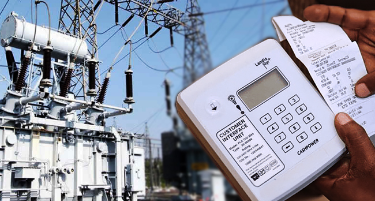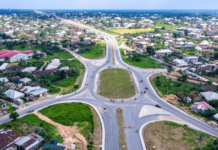In a significant move aimed at improving healthcare delivery, the Nigerian Federal Government has announced a substantial 50% electricity subsidy for public hospitals across the nation. This decision, which marks a pivotal shift in the government’s approach to healthcare funding, was revealed by the Minister of State for Health and Social Welfare, Tunji Alausa, during his visit to the National Neo-Psychiatric Hospital located in Barnawa, Kaduna State.
The announcement came during the commissioning of several vital projects at the hospital. These projects include the implementation of Electronic Health Records and the introduction of an Alternative Power Supply system at the Lawal Jafaru Isah Emergency Complex. Notably, the minister also inaugurated a solarisation initiative at the hospital’s dialysis unit, featuring a solar-powered borehole and a 10.2 KVA inverter at the Abdulkareem Jika Yusuf COVID-19 Intervention Centre. These advancements signify a significant step towards enhancing healthcare infrastructure and ensuring the sustainability of essential medical services.
 Minister Alausa elaborated on the government’s rationale behind these initiatives, highlighting the pressing need to reduce operational costs for public hospitals. The high cost of electricity has long been a burden on these facilities, often impacting their ability to provide uninterrupted services to patients. By subsidizing electricity costs, the government aims to ease the financial strain on hospitals, ultimately leading to better patient care and more efficient healthcare delivery. “This initiative is part of our commitment to reducing the operational costs of public hospitals and, by extension, alleviating the financial burden on patients,” Alausa stated.
Minister Alausa elaborated on the government’s rationale behind these initiatives, highlighting the pressing need to reduce operational costs for public hospitals. The high cost of electricity has long been a burden on these facilities, often impacting their ability to provide uninterrupted services to patients. By subsidizing electricity costs, the government aims to ease the financial strain on hospitals, ultimately leading to better patient care and more efficient healthcare delivery. “This initiative is part of our commitment to reducing the operational costs of public hospitals and, by extension, alleviating the financial burden on patients,” Alausa stated.
In addition to the subsidy announcement, Minister Alausa disclosed plans to rename federal hospitals as Specialist Hospitals. This change is intended to broaden the scope of healthcare services provided and to destigmatize these facilities, making them more accessible to the general population. The rebranding aims to attract a wider range of patients by offering comprehensive healthcare services, while still retaining their core focus on psychiatric care. “We are going to change the names of our Federal Hospitals to Specialist Hospitals to expand care delivery and destigmatize these hospitals. This change will encourage more people to seek care, knowing that these facilities offer a broad spectrum of medical services,” Alausa explained. He emphasized that while psychiatric care will remain a primary focus, the renaming will allow for the continuous expansion of services, catering to a broader array of health issues.
The minister’s visit and the subsequent announcements come at a challenging time for the healthcare sector in Nigeria. The ongoing warning strike by resident doctors has added to the difficulties faced by public hospitals, complicating efforts to provide seamless healthcare services. One poignant issue highlighted by Minister Alausa is the case of Dr. Ganiyat Popoola, a doctor who was recently kidnapped from the hospital staff quarters. The strike has made it more challenging to coordinate efforts to secure her release. Alausa appealed for calm and patience, assuring the hospital community and the general public that all necessary measures are being taken to ensure Dr. Popoola’s safe return. “We understand the fear and anxiety surrounding Dr. Popoola’s abduction, and I assure you that the government is doing everything possible to bring her back safely,” he said, calling for a united front in addressing the challenges facing the healthcare sector.
The federal government’s decision to subsidize electricity for public hospitals and rebrand these facilities as Specialist Hospitals underscores its commitment to improving healthcare services across the country. These initiatives are expected to have a far-reaching impact, not only by reducing operational costs but also by enhancing the quality of care provided to patients. As public hospitals transition to this new model, it is hoped that they will be better equipped to meet the diverse healthcare needs of Nigeria’s population, providing a more inclusive and supportive environment for all patients.
This bold move by the government is seen as a step in the right direction, aligning with broader goals of improving healthcare infrastructure and ensuring that all Nigerians have access to quality medical services. By addressing both the financial and operational challenges faced by public hospitals, these measures are expected to contribute significantly to the overall improvement of the healthcare system in Nigeria.




